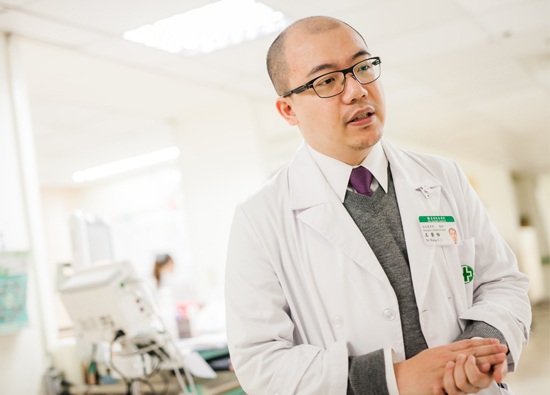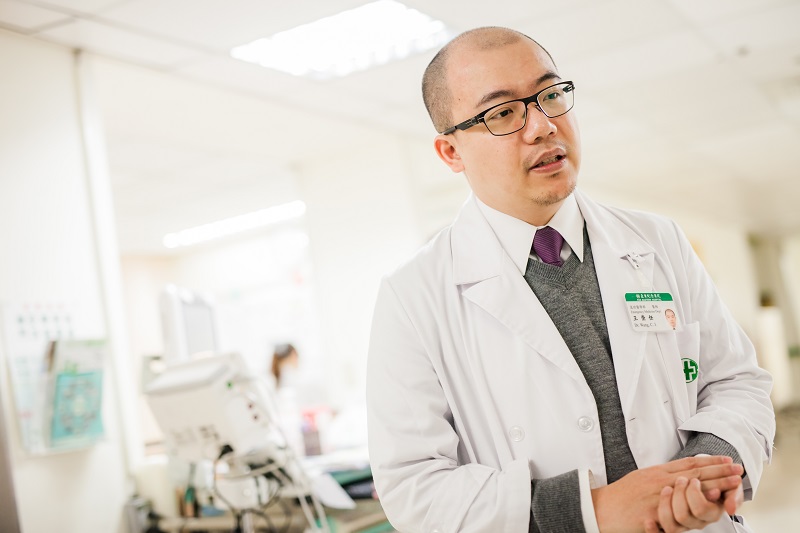09.2020 Life Guide
Poor quality of sleep is not as easy as you think. On obstructive sleep apnea
Dr. Wang Chongren, Department of thoracic medicine, Far Eastern Memorial Hospital /


For human beings, sleep, like diet, is a basic physiological need, which can make the brain and body get enough rest and recover energy. However, modern people's fast pace of life, work pressure, leading to poor sleep quality, and even sleep disorders, patients with abnormal physiological conditions, more serious, psychological, behavioral will also be affected.
It is estimated that obstructive sleep apnea affects at least five percent of adults and twenty percent of the elderly. Long term obstructive sleep apnea can easily lead to problems such as tiredness, inattention and emotional instability during the day, which leads to the decrease of attention and judgment, which becomes a great trouble in work and social life, and even leads to traffic accidents. Other studies have pointed out that obstructive sleep apnea is not only a single problem that occurs when sleeping at night, but also a common problem involving the whole brain and various organs of the body. It will also be complicated with hypertension, cerebrovascular diseases, hyperlipidemia and abnormal blood glucose metabolism, which should be paid more attention to.
The main cause of obstructive sleep apnea is that when the human body is sleeping soundly, the nerve excitation is reduced and the muscle tension is reduced. The muscles of the whole body (including the muscles of the suction passage) will be relaxed and unable to maintain the tension during the day. Especially, the diameter of the oropharyngeal position becomes smaller. If it occurs in people with narrow or abnormal structure in the first day, serious obstruction and restriction will be formed In order to pass through the narrow part, the air flow must be accelerated. Therefore, the soft tissue vibrates rapidly, and then snoring sound is issued, even completely blocked, forming a shallow breathing or non sucking condition.
How to judge whether there is obstructive sleep apnea
Symptoms of obstructive sleep apnea include:
Nocturnal habitual snoring, and accompanied by smoking stop phenomenon
It is not easy to sleep during the day
Overweight or obese
Frequent urination at night, or get up easily headache
Cardiovascular disease (e.g. hypertension, arrhythmia, myocardial infarction or stroke)
Attention is not easy to concentrate, learning ability and memory decline
If you suspect that you have the above symptoms, you can consult the outpatient department of thoracic medicine. After the doctor's evaluation, if you think that there is the possibility of obstructive sleep apnea, you can arrange to have an all night sleep physiological examination in the sleep center. At present, this tool is often used in sleep medicine research, diagnosis of sleep physiology, sleep disorders and sleep related diseases. During the examination, one night's sleep in the sleep center is required, about 6-8 hours. The sleep technician will fix the lead electrode sticking and sensor on the patient, and let the computer record and monitor the EEG, EMG, eye movement, nose and mouth inspiratory flow, ECG, ECG, etc Smoking pattern, blood oxygen concentration and snoring index. In addition, before sleep examination, patients will be asked to fill in various questionnaires as a basis for further analysis, so as to diagnose whether the patients have obstructive sleep apnea and determine the severity of symptoms.
According to the degree of symptoms to determine the treatment policy
If the symptoms are judged as "mild" or "moderate" after several physiological examinations during the whole night's sleep, they can be treated by otolaryngologists or by professional trained dentists to make oral devices (commonly known as Anti Snoring braces).
If the patient is "moderate", "severe" or "mild", but with severe daytime sleepiness, continuous positive pressure inhaler is recommended for treatment. The doctor will arrange the patient to sleep in the sleep center for one night and receive the positive pressure inhaler pressure test. The principle of this treatment is that when the patient sleeps, it provides a positive pressure airflow into the suction passage through the nasal mask, so that the originally blocked suction passage can be maintained unobstructed again, the aspiration becomes regular, the oxygen concentration in the blood returns to normal, and the frequency of snoring is reduced. After normal sleep, the quality of life can be improved.
However, the use of positive pressure suction machine is just like wearing glasses for myopia correction. It needs to be used for a long time. You should take it with you when you are on business or traveling. In addition, maintaining good sleep hygiene can also make symptoms better controlled, combined with weight loss, exercise, avoiding alcohol and smoking habits, because obesity has a key impact on obstructive sleep apnea. When fat accumulates, it will make the airway narrower and easier to block. As for the stimulation of drinking and smoking, the upper airway will become more relaxed and aggravate snoring With aspiration stop symptoms.
After reading the above introduction, I believe you have a certain degree of understanding of obstructive sleep apnea. If you find that family members or relatives have similar symptoms, it is recommended to seek the help of doctors and medical teams. As long as the symptoms are well controlled, the quality of sleep and life will be significantly improved.



















